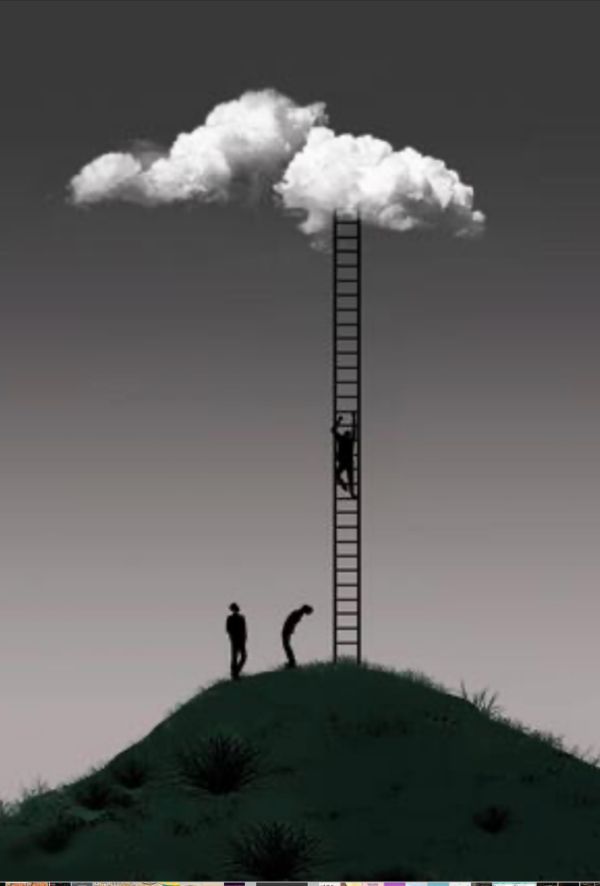Trumpets, bass drums and reciters, or perfect instruments
(Mt 6:1-6.16-18)
External wiles have no wisdom: they become a boomerang.
Whoever tries to shine obscures his own light. Anyone who cares about the opinion of the crowds will be a prisoner of it.
Life in the Spirit detaches itself from the practice of (accidental) things to show in order to beg for recognition.
Artificial alms:
Even show men who are starting to lack inspiration like to be considered benefactors of humanity, but their real goal is to go on stage - not the spread of a spirit of disinterest.
They intend to be recognized and acclaimed again - for this they use an absolutely flashy, exhibitionist and tacky way.
Reached the individualistic goal, despite the superficial altruism they would leave everything as it was.
It would be quite different if the left didn’t know what the right does, that is, if every gesture flourished spontaneously and in hiding rather than in overload - but let alone what a pleasure, not to let it be known.
The same orientation is valid for Prayer, much better if inapparent. The inner life is not unnatural acting.
In the Temple the sacrifices were accompanied by public formulas. To this effect, the synagogues were also considered an extension of the Temple. And at the appointed hours, prayer was also on the street.
Those who were able to recite long litanies by heart could thus flaunt their virtue and be admired.
But Dialogue with God is not performance, but essential Listening: root of renewal; principle of criteria and action.
Prayer is intimate perception and profound reading of things. Understanding and empathy that restore us to the meaning of personal life - critical moment of our growth and love for brothers.
The soul dominated by noise doesn’t grasp the guidance of the innate Friend, nor its own primary quality.
Open prayer establishes people in this intimate, secret, hidden atmosphere, which in the Spirit is intertwined with the deepest and most ancestral fibers.
Again, personal prayer is creative. It not only cancels the idea that we have made of life, pains, goals, relationships, defeats, judgments...
[The bitterness doesn’t seem to make life fly - but they invite to move our eyes].
And attentive Listening transmits a new Reading to us; pushes out of boundaries. Puts in contact with other energies and virtues.
A higher level of humanity ‘comes’ to us only in the amazement of this different advice, of an unexpected intuition, of a reality that displaces.
Principle of Liberation that lets our own deep sides meet, and reminds them, making us travel through the akin territory - which we do not yet know.
The woman and the man who gather in prayer are torn from the homologation of interpretative codes, and from the disease of the society of appearances - seated in the opinions and in the time of the minimal.
Finally the (forcibly) thoughtful and undone aspect:
Perhaps even today some use to pose in an extravagant way, showing themselves off as "alternative". Here and there, it seems to be some regurgitation of artificial asceticism.
But in this way believers only walk the way of renunciations in a manner [those that God doesn’t ask for]. And to the exact opposite, making the vital wave hysterical.
Instead, we are called to be in company: with ourselves and brothers. Even renunciation is for harmonious coexistence, without forcing that dissociate the main lines of the personality.
Here too the discernment of spirits becomes a propitious opportunity to create space for the humanizing vocation, and set the time of ambiguous noise in background.
[Ash Wednesday, March 5, 2025]












